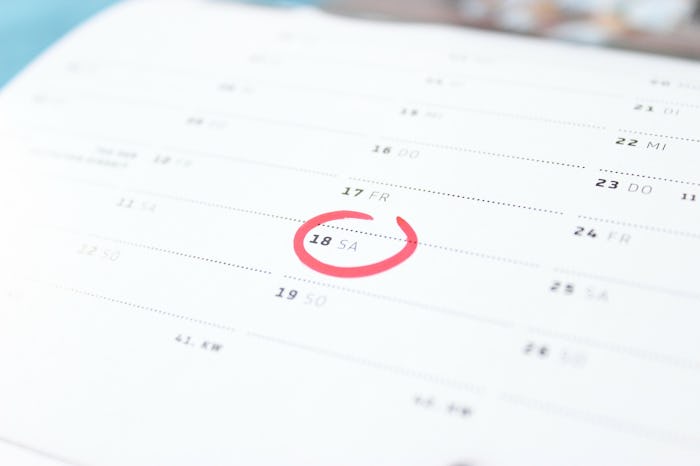Life
How Do You Make Your Luteal Phase Longer? An Expert Explains
Every woman’s cycle is different, and if you’re trying to conceive, it’s important to know what each phase of your cycle means, what each phase’s purpose is, and how long each phase is supposed to last. That way, it’s easier to time intercourse and know when to take an ovulation test or a pregnancy test. If you’re currently trying to conceive, you may have heard of the term “luteal phase.” What does that mean? And how long is it supposed to be? If it’s too short, how do you make your luteal phase longer?
Dr. Yvonne Bohn, an OB-GYN at Providence Saint John’s Health Center in Santa Monica, California, says the luteal phase is the second part of your cycle, which begins after ovulation, and typically lasts for 12 to 16 days. “During this part of the menstrual cycle, the corpus luteum, which is the follicle that is released during ovulation, produces progesterone. Progesterone is necessary for stabilizing the uterine lining and preparing it for implantation of the embryo,” she tells Romper in an email interview.
If you have issues like thyroid dysfunction, Polycystic Ovarian Syndrome (PCOS), or if you’re obese, your luteal phase may not last as long as it's supposed to, which can cause issues with infertility and pregnancy loss. “If you have infertility, recurrent pregnancy loss, or cycles that are either as frequent as every 14 days or more than 60 days apart, you need to be checked to see if you are ovulating and if your progesterone level is normal. If you are in this situation, your doctor needs to determine why you are not making adequate progesterone,” Bohn says. There are treatments to support your luteal phase by lengthening it, and thus, supporting ovulation. A popular drug for infertility and lengthening your luteal phase is Clomid.
According to The American Pregnancy Association (APA), Clomid increases the amount of “follicle-stimulating hormone” (FSH) the pituitary gland secretes, which helps stimulate ovulation. FSH is responsible for regulating your reproductive processes in your body. As with any drug, there are some side effects to consider if you want to go this route in your trying to conceive journey. The APA said there is an increased incidence in you having multiples, miscarriage, depression, mood swings, hot flashes, nausea, and breast tenderness. Other treatments include “giving women supplemental progesterone or treating metabolic disorders that suppress proper ovulation,” Bohn says.
If your luteal phase lasts between 12 to 16 days, you definitely don’t need to seek help in lengthening it. You shouldn’t have issues with having a pregnancy stick, and you have the same chances of conceiving as everyone else who doesn’t have fertility issues. If you do have irregular cycles or your luteal phase is shorter than 12 days, treatment may be something you can explore with your doctor.
